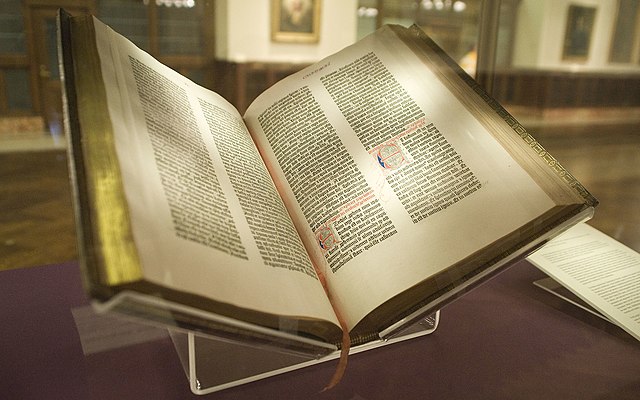God in Abrahamic religions
Monotheism—the belief that there is only one deity—is the focus of the Abrahamic religions, which like-mindedly conceive God as the all-powerful and all-knowing deity from whom Abraham received a divine revelation, according to their respective narratives. The most prominent Abrahamic religions are Judaism, Christianity, and Islam. They, alongside Samaritanism, Druzism, the Baháʼí Faith, and Rastafari, all share a common core foundation in the form of worshipping Abraham's God, who is identified as Yahweh in Hebrew and called Allah in Arabic. Likewise, the Abrahamic religions share similar features distinguishing them from other categories of religions:all of their theological traditions are, to some extent, influenced by the depiction of the God of Israel in the Hebrew Bible;
all of them trace their roots to Abraham as a common genealogical and spiritual patriarch.
The Mesha Stele bears the earliest known reference (840 BCE) to the Israelite god Yahweh.
In his 1838 personal history, Joseph Smith wrote that he had seen two personages in the spring of 1820. In 1843, Smith stated that these personages, God the Father and Jesus Christ, had separate, tangible bodies.
The term Abrahamic religion groups three of the major religions together due to their historical coexistence and competition; it refers to Abraham, a figure mentioned in the Hebrew Bible, the Christian Bible, and the Quran, and is used to show similarities between these religions and put them in contrast to Indian religions, Iranian religions, and the East Asian religions. Furthermore, some religions categorized as "Abrahamic" also share elements from other categories, such as Indian religions, or for example, Islam with Eastern religions.
A Jewish Rebbe holds a Torah scroll.
Christianity is based on the teachings of the Bible
A Bible handwritten in Latin, on display in Malmesbury Abbey, Wiltshire, England. This Bible was transcribed in Belgium in 1407 for reading aloud in a monastery.
A cenotaph above the Cave of the Patriarchs traditionally considered to be the burial place of Abraham.






